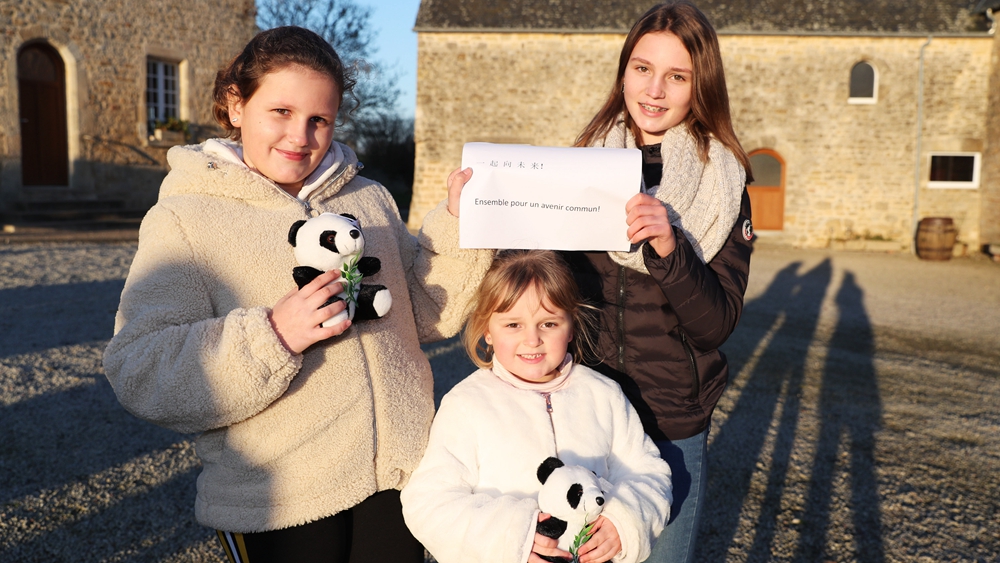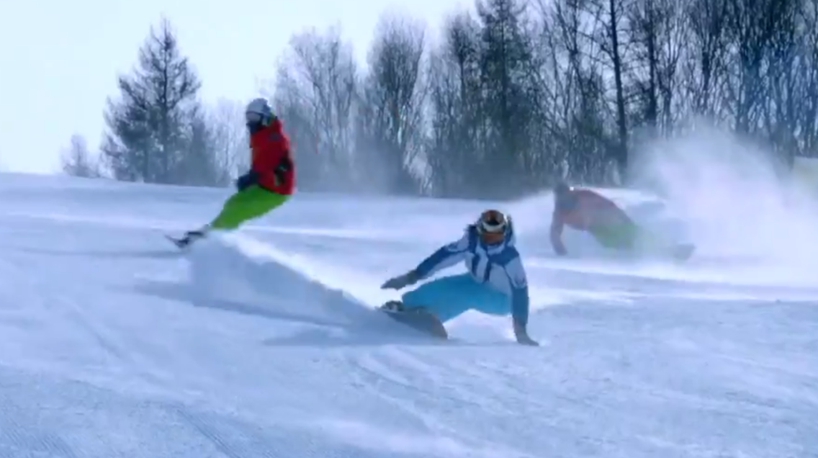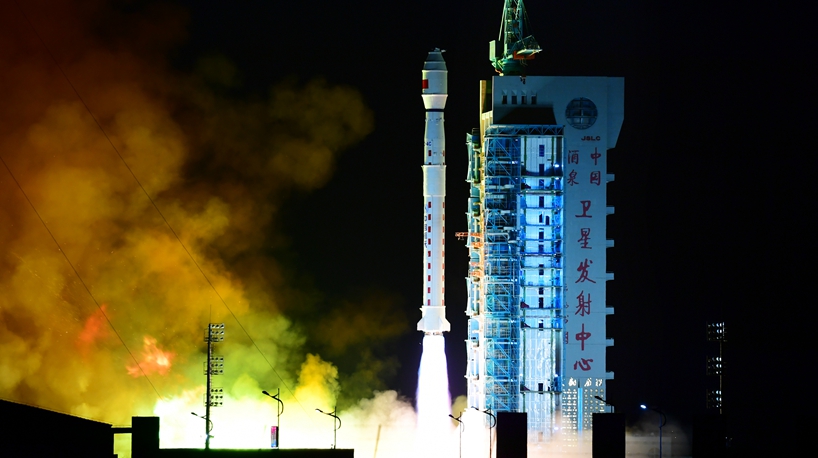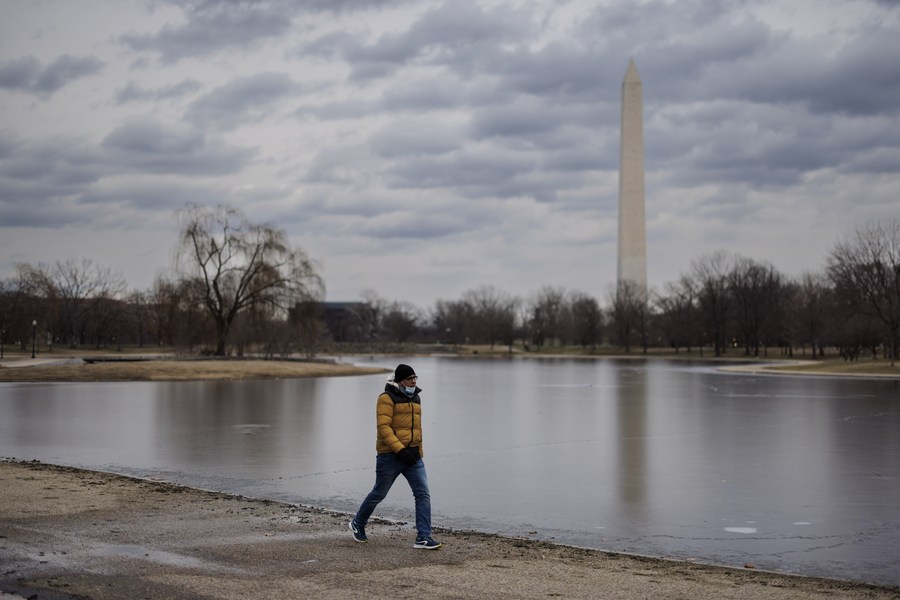
A man visits the National Mall in Washington, D.C., the United States, Jan. 17, 2022. (Photo by Ting Shen/Xinhua)
Public health experts warn that global vaccine disparities could threaten progress toward ending the pandemic.
NEW YORK, Jan. 27 (Xinhua) -- By Thursday, unvaccinated health care workers in roughly half the United States are required to get the first dose of a COVID-19 vaccine under a federal mandate that has already understaffed hospitals and nursing homes bracing to lose more workers.
The Joe Biden administration's mandate, which takes effect in stages, will ultimately affect about 10 million health care workers in 76,000 hospitals, nursing homes, home-health agencies and other providers that participate in Medicaid and Medicare.
The vaccine requirement goes into effect this week in states that did not challenge the mandate in court. Health care workers in most of the remaining states, where regional courts had blocked the mandate, will have until Feb. 14 to receive a first dose.
VACCINE AGAINST OMICRON
Moderna announced on Wednesday that the first participant has been dosed in the company's Phase 2 clinical trial of a coronavirus vaccine booster shot that is specific to the Omicron variant. The company expects to enroll about 600 people in the study, which will take place at up to 24 sites in the country.
Moderna is advancing the trial into its next phase as research published in the New England Journal of Medicine found that a booster dose of the vaccine remained durable against the Omicron variant but did show signs of waning antibody protection.
"Nonetheless, given the long-term threat demonstrated by Omicron's immune escape, we are advancing our Omicron-specific variant vaccine booster candidate and we are pleased to begin this part of our Phase 2 study," the company's CEO Stephane Bancel said in a news release.
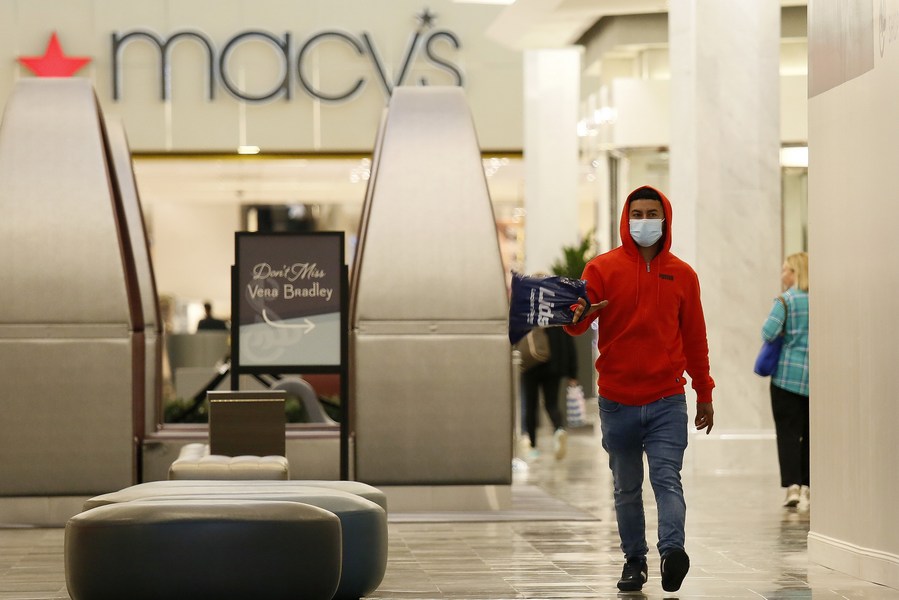
A man wearing a face mask is seen in a shopping center in New Orleans, Louisiana, the United States, Jan. 11, 2022. (Photo by Lan Wei/Xinhua)
PATH TO NORMALCY
Epidemiologists, immunologists and evolutionary biologists told The New York Times that by infecting so many people, Omicron "undoubtedly brings us closer to the end of the pandemic," noting that the current surge in infections is falling back, and there is reason to hope that hospitalizations and deaths will follow.
However, "the path to normalcy may be short and direct, the goal just weeks away, and horrific surges may become a thing of the past. Or it may be long and bumpy, pockmarked with outbreaks over the coming months to years as the virus continues to find footing," said the report published on Thursday.
In any case, there is no strong root in reality for optimism -- it is not likely that the coronavirus will ever completely disappear, many scientists said, and herd immunity is now just a dream. The population's immunity against the virus will be imperfect, for a variety of reasons, it added.
COVID-19 TO STAY
Most Americans believe COVID-19 is here to stay, according to an Associated Press-NORC Center for Public Affairs Research poll, as governments around the world prepare plans to live with the virus even as infections around the world remain high, fueled by the Omicron variant.
The vast majority of Americans, 83 percent, said they will consider the pandemic over when COVID-19 is largely a mild illness like seasonal flu, according to the poll, conducted Jan. 13-18 among 1,161 U.S. adults. In contrast, just 15 percent said they will consider the pandemic over when it is largely eliminated.
Nearly three quarters of people believe it is essential (59 percent) or important (14 percent) to get personally vaccinated for life to get back to normal, though just over a third of parents (37 percent) felt vaccines were essential for their children, U.S. business magazine Forbes cited the poll.
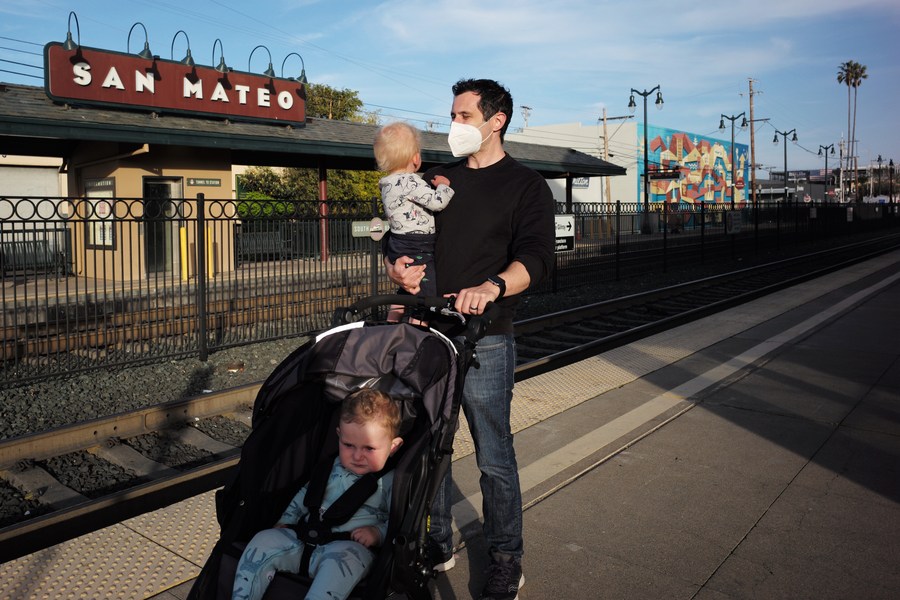
File photo taken on April 11, 2021 shows a man wearing a KN95 face mask with children at a train station in San Mateo, California, the United States. (Xinhua/Wu Xiaoling)
GLOBAL VACCINE DISPARITY
As coronavirus cases and hospitalizations driven by the Omicron variant slowly recede in the United States, "public health experts are warning that global vaccine disparities could threaten progress toward ending the pandemic," reported The Washington Post on Thursday.
"Vaccine equity is absolutely critical," Maria Van Kerkhove, COVID-19 technical chief of the World Health Organization (WHO), said in a Q&A session on Tuesday. "The fact remains that more than 3 billion people haven't received their first dose yet, so we have a long way to go."
WHO officials and others have stressed that vaccine inequity drives transmission and increases the likelihood of new variants. Even though over 60 percent of the world's population has received at least one coronavirus vaccine dose, fewer than 10 percent of people in low-income countries have done so. ■



